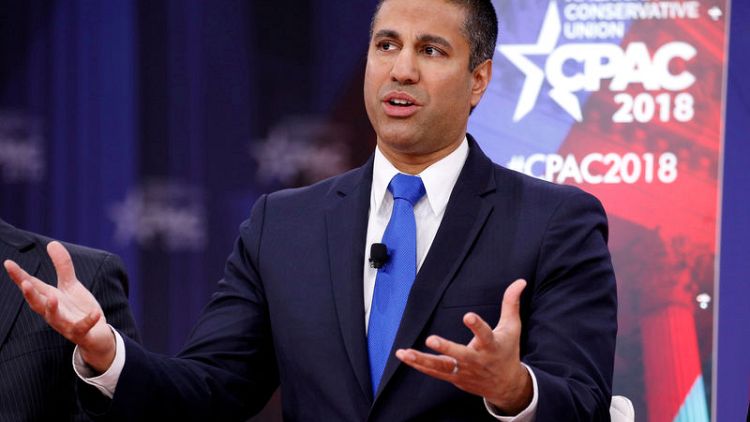WASHINGTON (Reuters) - Federal Communications Commission (FCC) Chairman Ajit Pai said on Monday he was pleased the U.S. interstate communications regulator's inspector general had concluded there was no evidence of impropriety relating to the proposed, and now defunct, merger of Sinclair Broadcast Group <SBGI.O> and Tribune Media Co <TRCO.N>.
Two U.S. House Democrats in November last year asked the FCC inspector general to probe whether Pai was biased in favor of Sinclair, which is seeking approval of a $3.9 billion (3.06 billion pounds)acquisition of Tribune.
Representatives Frank Pallone and Elijah Cummings cited FCC decisions that benefited Sinclair, the largest U.S. television broadcast group, and a 2017 media report that the presidential campaign of President Donald Trump had struck a deal with Sinclair for favorable coverage.
"I'm pleased that the Office of Inspector General has concluded that there was 'no evidence, nor even the suggestion, of impropriety, unscrupulous behavior, favoritism toward Sinclair, or lack of impartiality related to the proposed Sinclair-Tribune merger,'" Pai said in a statement.
Sinclair announced plans in May 2017 to acquire Tribune’s 42 TV stations in 33 markets as well as cable network WGN America, extending its reach to 72 percent of American households.
But the deal was scuttled earlier this month after the Republican-led FCC expressed opposition to the deal, when it questioned Sinclair's candor over the planned sale of some stations, suggesting Sinclair would effectively retain control over them.
(Reporting by Chris Sanders; Editing by Dan Grebler and G Crosse)



